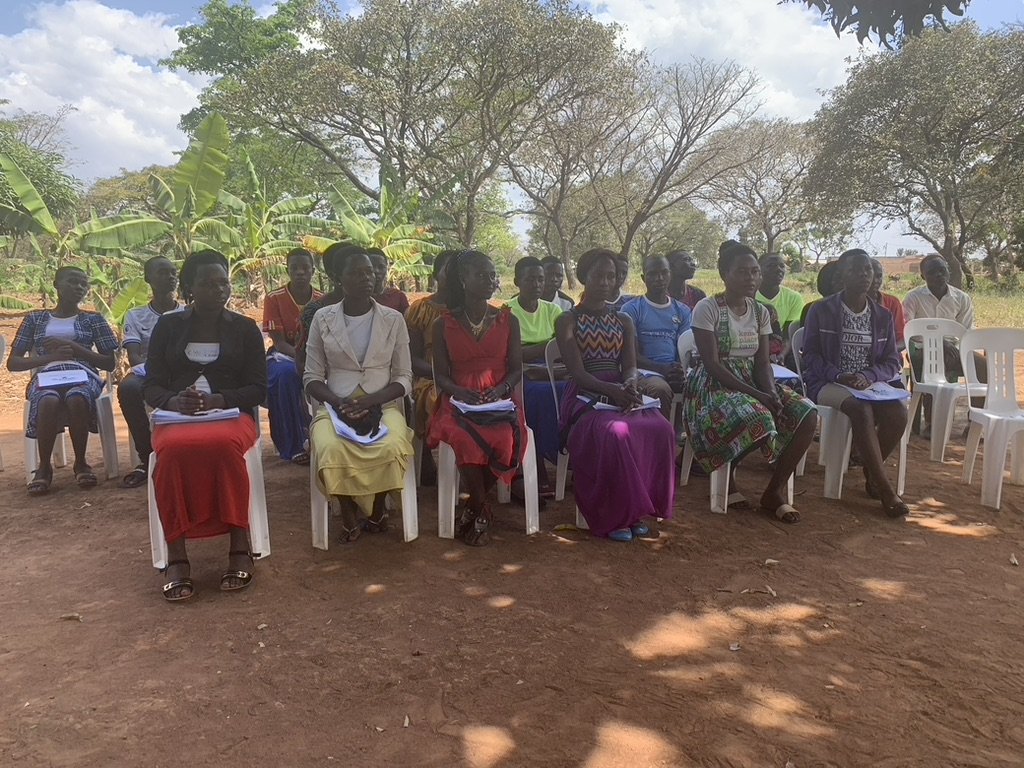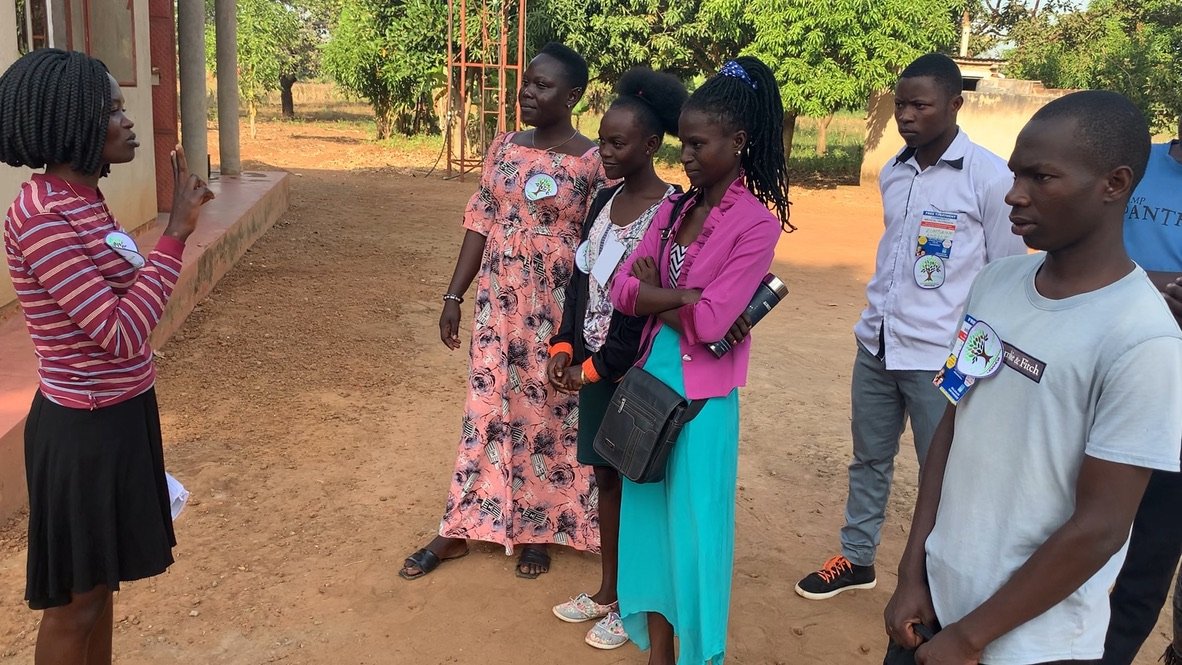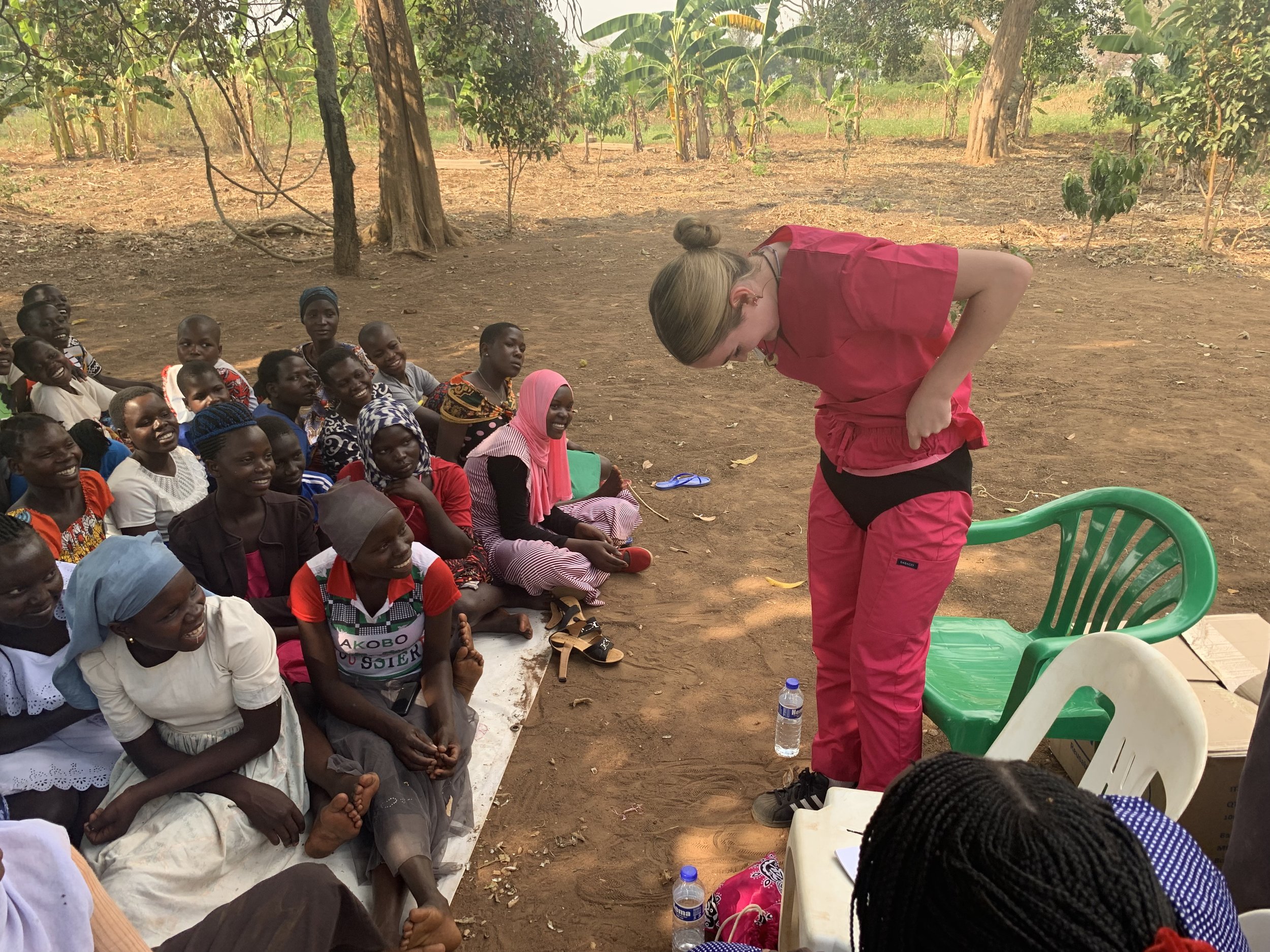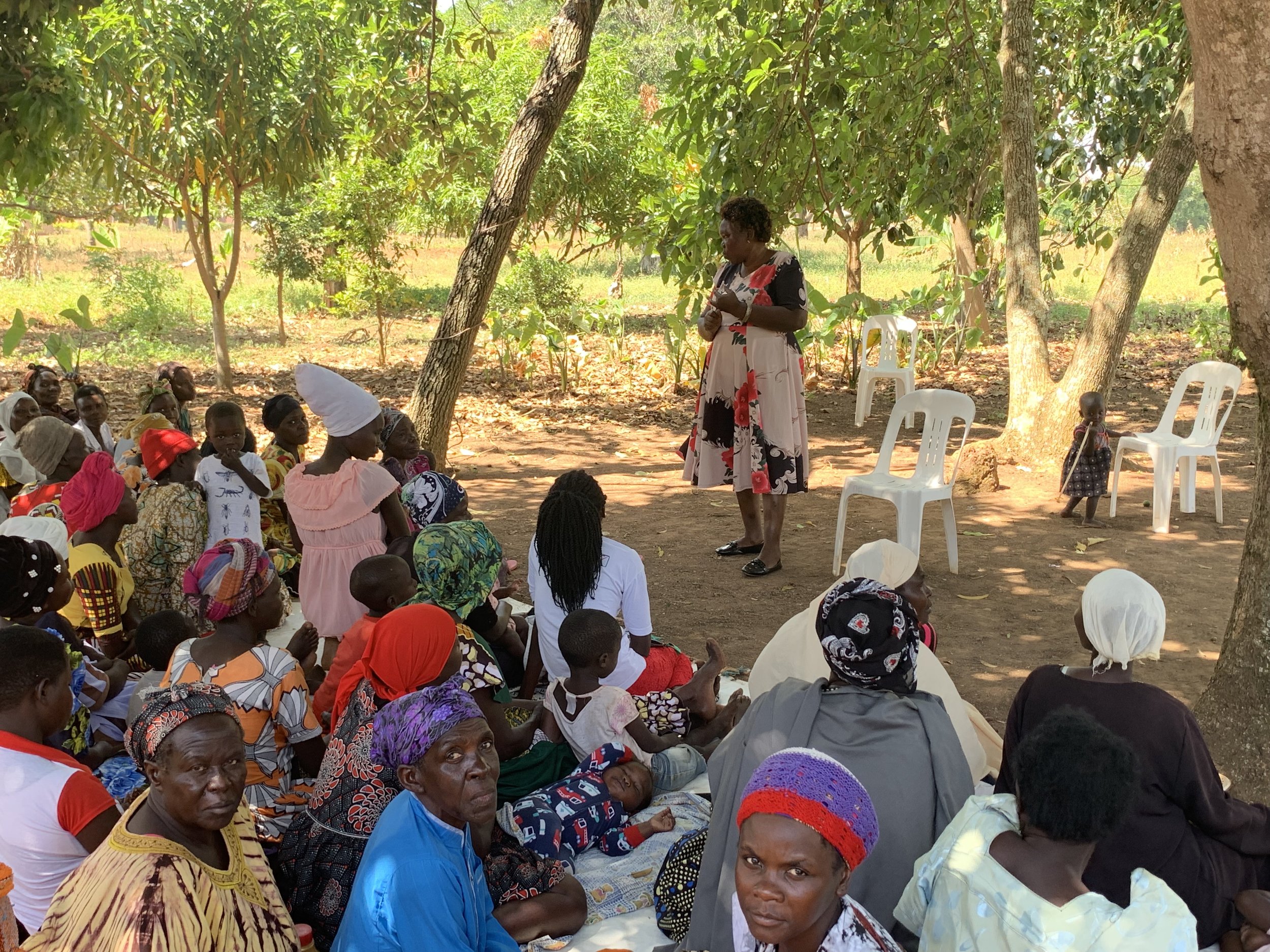
Community
Education is a sustainable intervention that can have an impact for years to come.
Classes are open to everyone in the community, not just those being seen in clinic.
We emphasize prevention and symptom management.
Team leader Jean Proehl greets a patient from past years during a community tour
Interpreters
Interpreter Class in Nangaiza
Classes are held for interpreters upon our arrival as we set-up the clinic. We discuss the Community and Patient Education Guides and ask the interpreters if they have questions or if they would like to see new topics added.
Team members present topics that are requested by the interpreters.
Each morning, before clinic begins, we hold a “Medical Minute” for the interpreters to present a topic. The interpreters volunteer and choose their topic.
Interpreter doing presentation to peers at Medical Minute
Interpreter doing presentation to peers at Medical Minute
Interpreter demonstrating hand washing during Medical Minute
Girl’s Hygiene
In Uganda, disposable sanitary napkins either are not available or are expensive.
When girls have their period, they may not have access to period supplies and thus have to miss school.
They often miss a lot of school and many drop out.
Once this happens, they are likely to marry and begin having children leading to a cycle of poverty.
We distribute kits with reusable feminine hygiene products purchased from a AFRIPads, a local Ugandan manufacturer.
Young female team members teach classes to girls who have reached puberty about:
Feminine hygiene
How to use the reusable, washable feminine hygiene products (AFRIPads)
Preventing pregnancy
Preventing sexually transmitted infections
We distribute 300-400 kits every trip.
Our goal is to encourage girls to stay in school.
Girls lining up for feminine hygiene class and to receive reusable feminine hygiene pads (AFRIpads) and underwear.
Samantha Neville demonstrating how to use the reusable feminine hygiene pads
Evelyn Nakimuli teaching girls how to make their own pads
Community members come together to teach girls to make their own reusable feminine hygiene pads
A girl learning how to sew her own pads
Pregnant Women
The average Ugandan woman has 5.4 children so pregnancy care is an important consideration.
A local nurse helps us teach a class to women of childbearing age (those who are and who are not pregnant).
The class focuses on teaching women about staying healthy during and after pregnancy, including normal body changes, breastfeeding, hygiene, and when to seek medical treatment.
Group class for pregnant women taught by Hellen Adengo, Director from the All Saints Buchangandi Clinic in Goli Goli.
New Baby Care
Group class for about infant care taught by Hellen Adengo, Director from the All Saints Buchangandi Clinic in Goli Goli.
A local nurse helps us teach a class about taking care of a newborn baby.
Mothers are taught about normal baby sleeping, feeding, weight gain, body changes, how to prevent infection, and when to seek treatment.
New Baby Care Class
JaJa (Grandmother) Classes
Jajas in class giving their traditional greeting!
Classes are held every day for grandmothers (called JaJas in Uganda).
The classes are taught by team members who are grandmothers.
We hold a special classes for grandmothers because they are:
Respected as leaders in the community
Frequently sought out for advice and guidance about health matters
Not likely to leave the community
Many of them are raising their grandchildren while their parents are working or who may be orphans because of AIDS.
The grandmothers select some topics and we also teach them topics of general interest about community health.
Cindy Tryniszewski facilitates the JaJa (Grandmother) Class
Children
Half the population of Uganda is 16 years old or younger so there are many children.
Several classes are held every day to teach children why it is important to wash their hands and how to properly wash their hands.
Games are played, for example, using glitter, to show children how germs can spread from one child’s hands to another.
Children lined up for hand washing and mouth care classes.
Child teaching handwashing by singing the ABC song. (English is one of the official languages of Uganda and all schoolchildren learn English so, yes they know the ABC song!)
Robert Nabulere, Team Host, teaching children
Men
Male team members help facilitate daily classes with men of all ages.
Local community leaders often lead these classes.
The main focus of the classes is domestic violence (DV).
The class helps dispel myths about DV, such as, a man has paid a dowry for his wife and therefore believes he has a right to do whatever he wants to her.
Men are asked to name one thing they can do to stop or prevent domestic violence.
Domestic violence prevention class for men facilitated by local pastors.





















